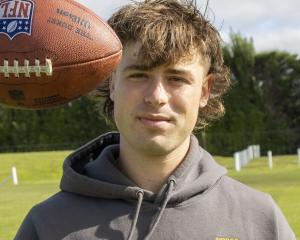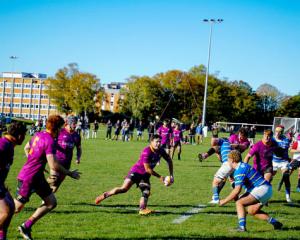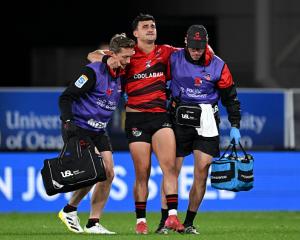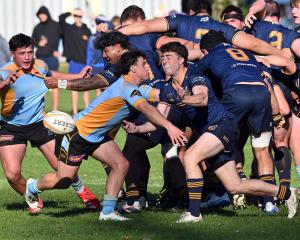Defining greatness is inherently difficult - but if the All Blacks are to claim their fourth world title this weekend in Paris, it would trump their previous global gongs, writes Liam Napier.
There’s no sense the All Blacks are letting minds wander to holding the Webb Ellis Cup aloft at Stade de France. Their World Cup campaign has been built on living in the moment. With the pinnacle prize in sight on Sunday morning (NZ time) and the Springboks standing in their way, that approach is not about to change.
At the risk of tempting fate, though, it’s worth contextualising the scale of the achievement the All Blacks could grasp.
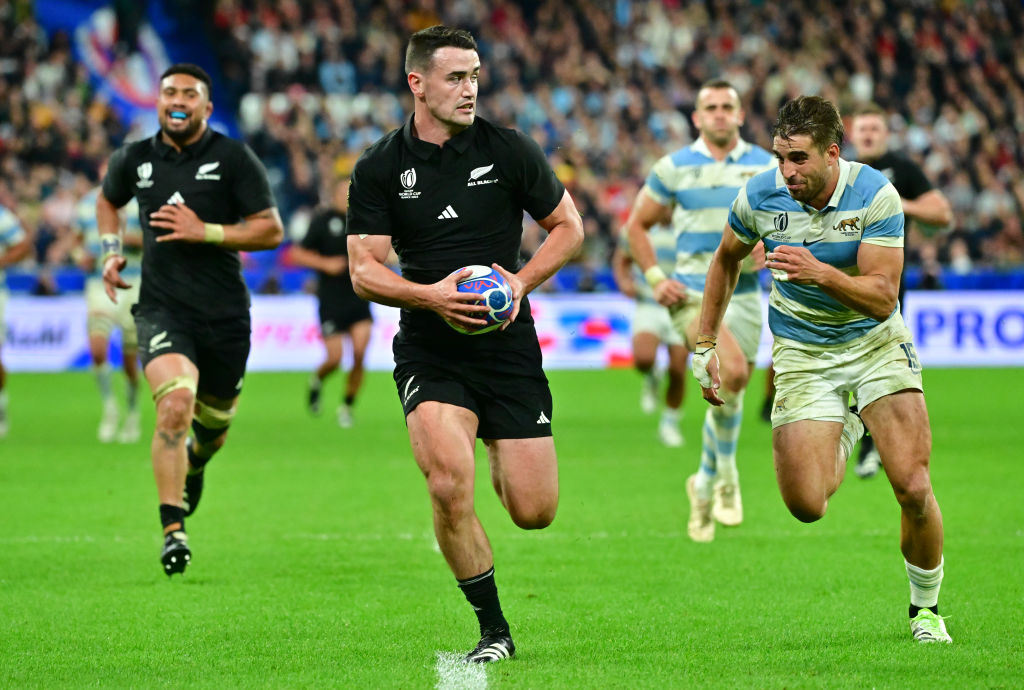
New Zealand hosted (jointly with Australia) and won the first World Cup in 1987 after the then International Rugby Board bowed to southern hemisphere pressure to establish a global event.
The All Blacks were overwhelming favourites for the inaugural title – and comfortably claimed the crown. Their 29-9 win over France in the final was their leanest winning margin in a tournament half the length of this year’s two-month marathon.
While the All Blacks boasted a brilliant team of legendary figures - Michael Jones, Sean Fitzpatrick, Buck Shelford, Zinzan Brooke, Grant Fox, David Kirk, and John Kirwan among them - South Africa’s glaring absence due to the apartheid regime removes some sheen.
New Zealand waited 24 long, painful years for their next World Cup success. As with the first, the second arrived on home soil.
Playing at home can be a blessing – as it was for South Africa in 1995 – and a burden when the weight of a nation is inescapable.
Amid such longing to break New Zealand’s drought, everywhere Graham Henry’s All Blacks turned they confronted exhaustive expectations in 2011.
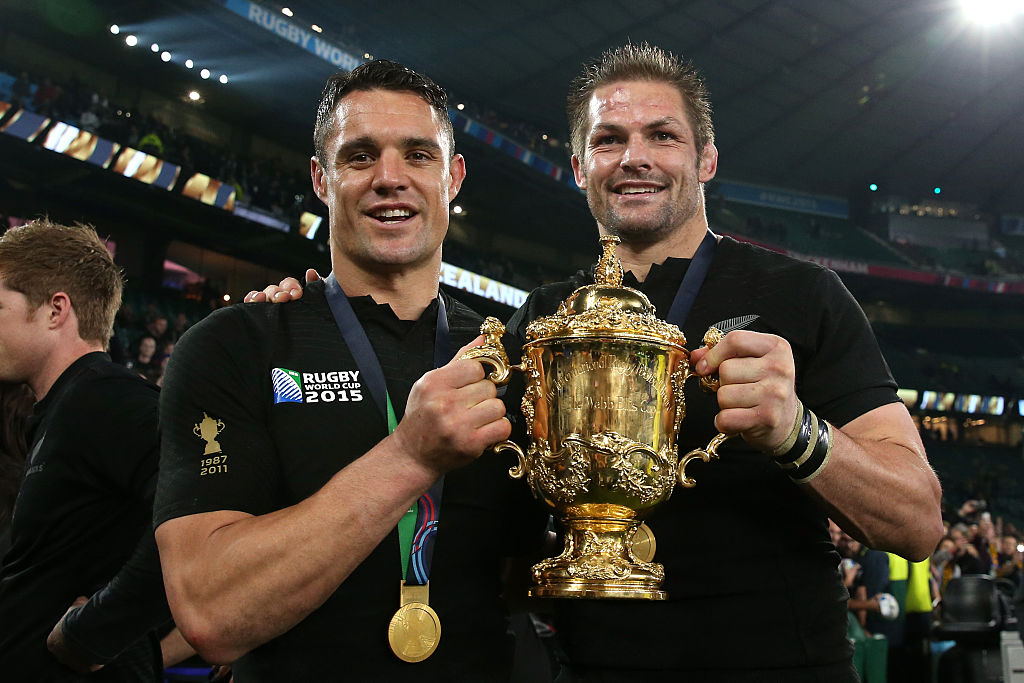
Four years later Steve Hansen’s All Blacks went back-to-back for the first time by clinching their maiden global crown on foreign soil with arguably the greatest team in rugby history. The loose forward trio – Jerome Kaino, Richie McCaw and Kieran Read – was perfectly balanced. So, too, Ma’a Nonu and Conrad Smith’s midfield partnership.
Carter peaked. Aaron Smith snipped. Brodie Retallick and Sam Whitelock paraded their pomp. And the bench featuring Beauden Barrett, Sonny Bill Williams, Sam Cane and Keven Mealamu speaks to their incredible depth. This was a once-in-a-generation side that fulfilled their billing.
That brings us to Ian Foster’s unfancied All Blacks. Consider their chequered path. A team that traversed the historic lows of the first loss and, then, home defeat to the Pumas; the first home series loss to Ireland, their largest single test defeat, lowest world ranking, two assistant coaching changes and maiden World Cup pool defeat now stands on the verge of becoming the most unlikely World Cup winners ever.
Ireland, world No 1, hosts France and the defending champion Springboks were all favoured over the All Blacks. Their odds further lengthened after successive defeats to the Boks and France, the latter in their World Cup opener.
Compared to the elite 2015 team at the start of this tournament Ardie Savea and Will Jordan were the only All Blacks likely to crack a combined world XV on form.
All-court props Ethan de Groot and Tyrel Lomax, Scott Barrett, Aaron Smith, Mark Tele’a and Jordie Barrett have since significantly elevated their credentials to join Savea and Jordan at the forefront of that conversation.
From where they were 14 months ago – losing six tests from their last eight – to where they are, the All Blacks have defied perceptions and predictions to rewrite the narrative and reach touching distance of their greatest World Cup triumph.
Throw in the backdrop of Foster’s coaching team being out of a job beyond this tournament, and the All Blacks claiming a second Webb Ellis Cup away from home – in the eighth attempt – would surpass their 1987, 2011 and 2015 successes.

“To be honest it’s just belief,” All Blacks loose forward Dalton Papali’i explained. “It’s so hard when you have a bit of the media and other outside noises having an impact on us.
“The blessing in disguise for us was coming into this World Cup we were going under the radar. Everyone was looking at other teams – France, England, South Africa, Ireland – those were the talking points. We adopted the mindset that we wanted to fly under the radar and now look at us, we’re here. It’s a credit to ourselves but the job is not done we’ve got one more week for greatness and we’re looking forward to it.”
Foster’s All Blacks have timed their run. Their trajectory, confidence and trust suggest they have one more peak performance in them, too.
“I hope so,” Papali’i said. “You play rugby for these moments. This is the pinnacle. This is the moment on top of the mountain that everyone chases and wants to be. So many players play their whole career and don’t get an opportunity to play in this game. This is it, do or die. It’s been that way for the last couple of weeks now.
“Growing up you watch the greats, Richie McCaw and those guys playing in these games, and you think ‘I could be there one day’ but to actually pinch yourself and go through all the hard yards now we’re in the week of weeks to get it right and make history. It’s pretty special.”
This dogged team now has the chance to redefine the definition of the All Blacks.
- By Liam Napier in Paris





